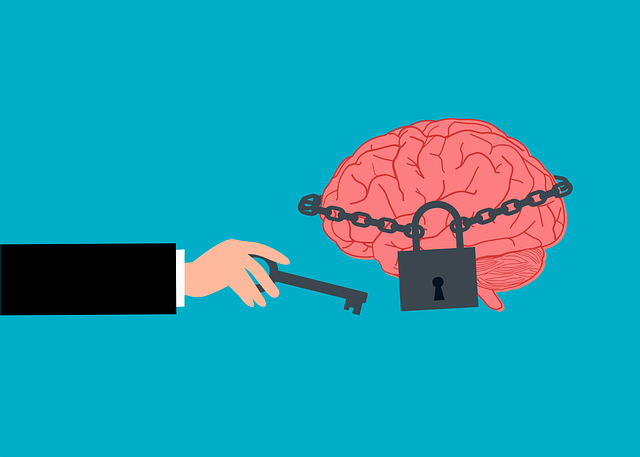Lafayette Children's Therapy tackles substance abuse in adolescents by addressing contributing factors like peer pressure, family history, and mental health challenges. They offer specialized services using evidence-based practices and cultural competency training to empower teens with emotional regulation tools. Through early intervention, prevention strategies, therapeutic approaches (like CBT), and a family-centric approach, Lafayette Children's Therapy breaks the cycle of addiction, fosters resilience, and promotes long-term recovery for at-risk youth in their community.
Substance abuse among adolescents is a pressing concern, with Lafayette children particularly vulnerable. This article explores comprehensive risk reduction strategies tailored to address this issue head-on. We delve into understanding the unique risks faced by teenagers, emphasizing the role of early intervention and prevention programs specific to Lafayette children. Therapeutic approaches targeting underlying causes, family-based interventions, and robust community support systems are also scrutinized, offering a holistic approach to support vulnerable youth toward long-term recovery.
- Understanding Substance Abuse Risks in Adolescents
- Early Intervention and Prevention Strategies for Lafayette Children
- Therapeutic Approaches to Address Underlying Causes
- Family-Based Risk Reduction Techniques
- Community Support Systems for Long-Term Recovery
Understanding Substance Abuse Risks in Adolescents

Substance abuse among adolescents is a complex issue with far-reaching consequences. Understanding the risks associated with this behavior is a crucial step in prevention and early intervention. Adolescents, particularly those facing emotional challenges or living in unstable environments, are more susceptible to experimenting with drugs and alcohol. This period of life is characterized by rapid brain development, making teens more vulnerable to addiction and its long-term effects on mental health.
At Lafayette Children’s Therapy, we recognize that substance abuse risks can stem from various factors, including peer pressure, family history, and underlying mental health conditions. Our specialized services aim to empower adolescents with the tools for emotional regulation, a key aspect of risk management planning for mental health professionals. By integrating self-care practices into their daily routines, teens can develop resilience, enhance coping mechanisms, and reduce the likelihood of engaging in substance abuse behaviors.
Early Intervention and Prevention Strategies for Lafayette Children

In Lafayette, early intervention and prevention strategies for children at risk of substance abuse are crucial in fostering a healthy and resilient future. Local healthcare providers play a pivotal role by offering comprehensive assessments and tailored therapy programs that address underlying issues contributing to potential addiction. Through these initiatives, Lafayette Children Therapy aims to equip young minds with essential coping mechanisms, promote inner strength development, and prevent burnout—a growing concern among adolescents today.
By implementing evidence-based practices and incorporating cultural competency training for healthcare providers, the community can effectively navigate the complex landscape of substance abuse. These strategies not only help identify at-risk individuals early on but also foster an environment that nurtures emotional well-being, builds resilience, and encourages healthy decision-making. Ultimately, such proactive measures are key to breaking down the cycle of addiction and ensuring a brighter future for Lafayette’s children.
Therapeutic Approaches to Address Underlying Causes

Substance abuse often stems from underlying psychological issues that require professional attention to effectively address them. Therapeutic approaches play a pivotal role in identifying and treating these root causes, providing individuals with tools to manage their conditions long-term. Through various therapies like cognitive-behavioral therapy (CBT), clients can develop coping skills to handle stress, anger, or other emotions that might trigger substance misuse. This process helps break the cycle of addiction by replacing unhealthy behaviors with positive alternatives.
Lafayette Children Therapy offers specialized programs tailored to address these complex issues. By focusing on self-esteem improvement and mood management, therapists empower individuals to make healthier choices. These therapeutic interventions not only assist in risk reduction but also foster personal growth, ensuring individuals have the resilience to stay away from substances and lead fulfilling lives.
Family-Based Risk Reduction Techniques

Family-based risk reduction techniques play a pivotal role in addressing substance abuse issues, offering a holistic approach that involves everyone in the individual’s life. At Lafayette Children Therapy, therapists employ strategies tailored to strengthen family bonds and create supportive environments. This includes encouraging open communication where each member feels heard, respected, and understood. By fostering better understanding and empathy, families can navigate challenges together, reducing the risk of substance abuse.
Additionally, therapists provide guidance on effective problem-solving skills and coping mechanisms. These practices, coupled with mental wellness journaling exercises and anxiety relief techniques learned through healthcare provider cultural competency training, empower family members to support one another’s mental health. This comprehensive approach not only tackles immediate concerns but also fosters long-term resilience against substance abuse, enhancing the overall well-being of the family unit.
Community Support Systems for Long-Term Recovery

Community Support Systems play a pivotal role in long-term recovery from substance abuse. These systems provide a network of support that goes beyond individual therapy sessions, fostering a sense of belonging and accountability. In cities like Lafayette, programs focused on community engagement, such as support groups and social skills training, offer individuals the opportunity to connect with peers who share similar experiences, breaking down isolation often associated with addiction.
Organizations specializing in substance abuse recovery can facilitate these support systems through regular workshops and events that promote positive thinking, stress management, and healthy coping mechanisms. By integrating these initiatives into community life, organizations like Lafayette Children Therapy not only aid individuals in their immediate recovery but also empower them to maintain long-term sobriety by building a robust support network around them.
Substance abuse among adolescents is a complex issue, but with a multi-faceted approach, we can significantly reduce risks. By combining early intervention and prevention strategies tailored for Lafayette Children, therapeutic approaches addressing underlying causes, family-based risk reduction techniques, and robust community support systems, we can foster long-term recovery. Lafayette Children’s Therapy plays a crucial role in this process, ensuring that young individuals receive the necessary tools to lead healthier lives free from substance abuse.














